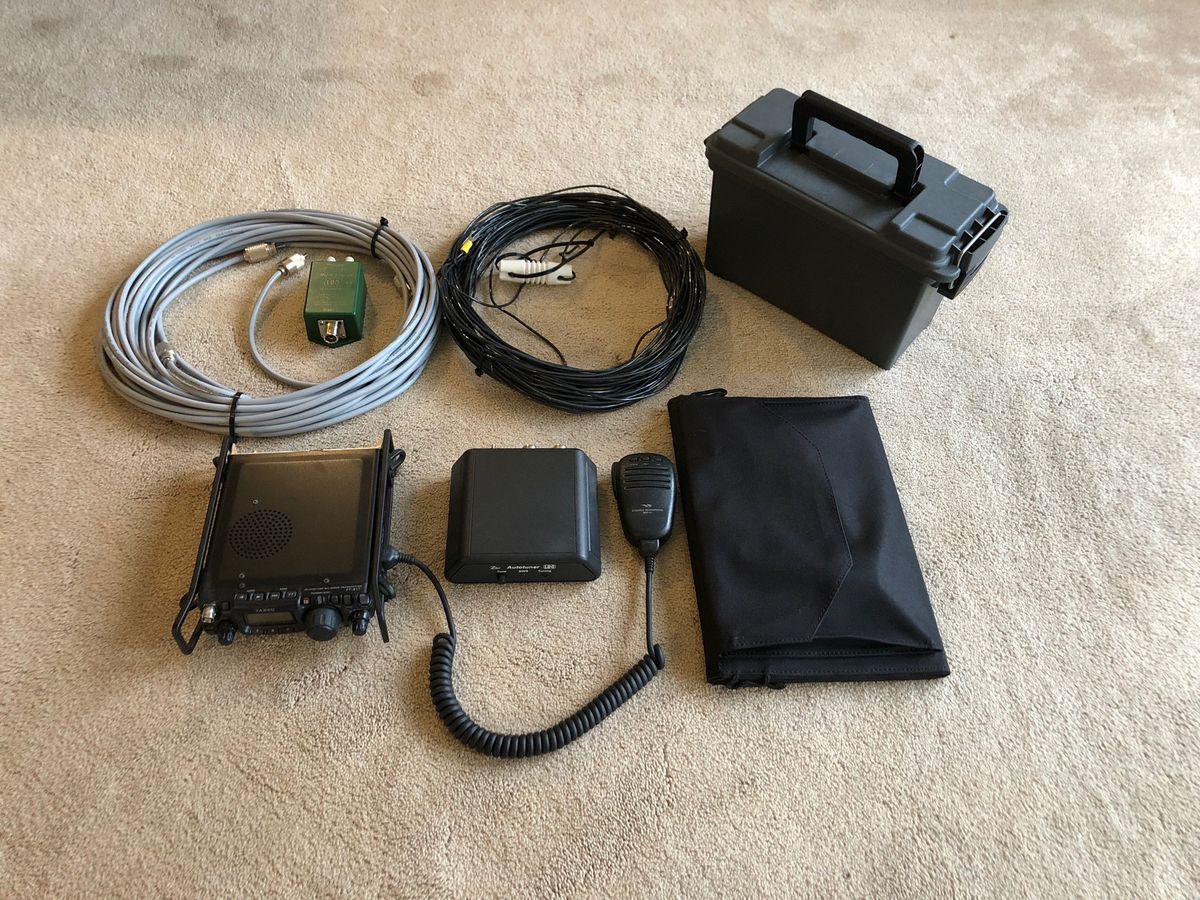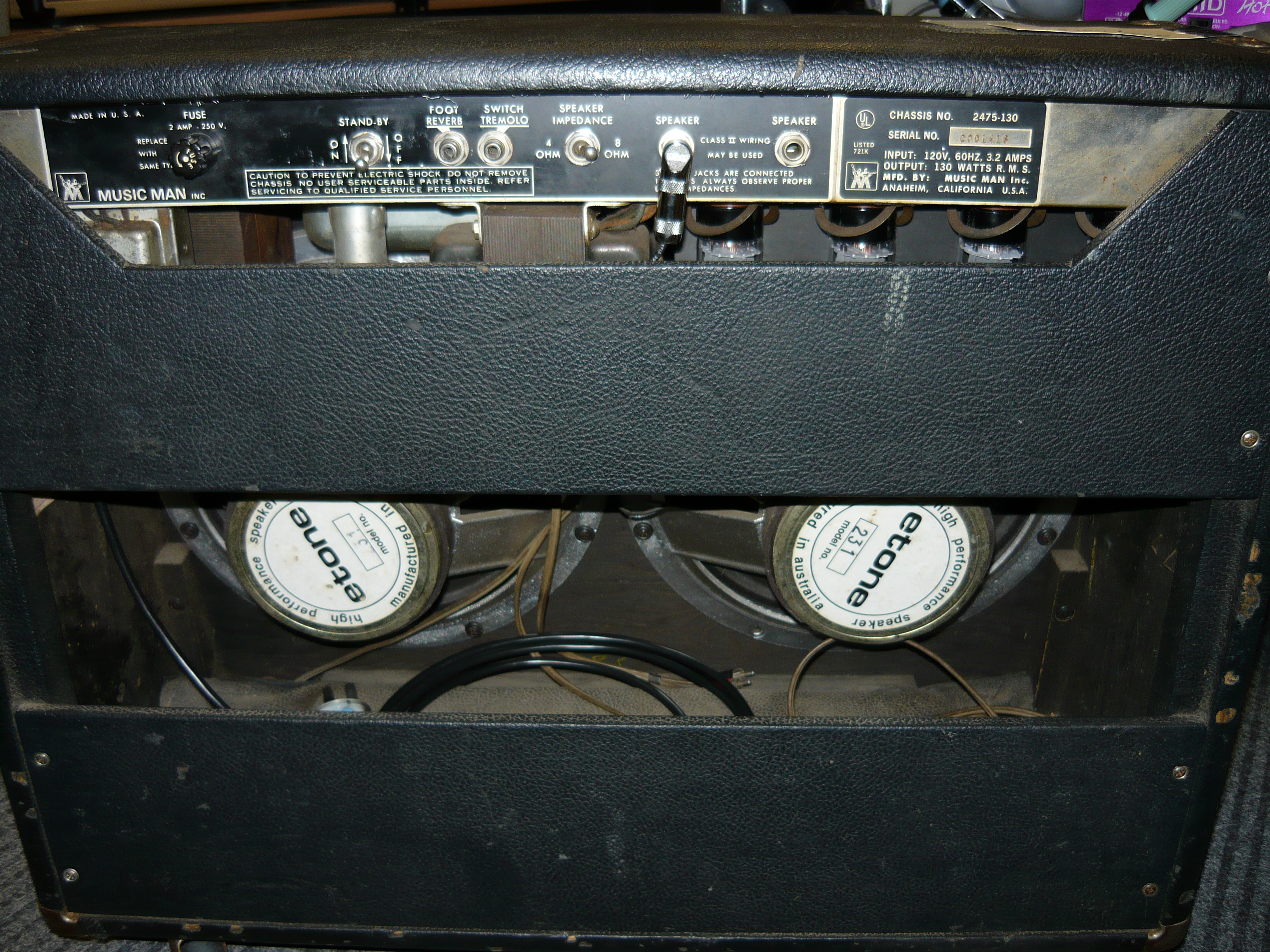Home>Devices & Equipment>Radio>How Much Do Radio Producers Make


Radio
How Much Do Radio Producers Make
Modified: January 22, 2024
Learn about the salary range of radio producers and their earning potential in the industry. Find out how much radio professionals make and explore career opportunities in radio.
(Many of the links in this article redirect to a specific reviewed product. Your purchase of these products through affiliate links helps to generate commission for AudioLover.com, at no extra cost. Learn more)
Table of Contents
Introduction
Welcome to the fascinating world of radio production! Behind every captivating radio show or podcast, there is a talented and hardworking radio producer who ensures that everything runs smoothly. Radio producers play a crucial role in the entertainment industry, creating compelling content, overseeing technical aspects, and coordinating with hosts and guests.
Have you ever wondered how much radio producers make? In this article, we will explore the salary range for radio producers, the factors that affect their earnings, and the opportunities for career growth in this dynamic field.
Radio production is a unique and fast-paced industry that requires a diverse skill set. As a radio producer, you need to be creative, organized, and adept at problem-solving. You will work closely with hosts, scriptwriters, sound engineers, and other professionals to produce high-quality and engaging radio shows.
Now, let’s delve into the salary range for radio producers and discover what factors influence their earnings.
Salary Range for Radio Producers
The salary range for radio producers can vary significantly depending on various factors such as experience, location, industry, and the size of the radio station or network. On average, radio producers can expect to earn between $30,000 and $60,000 per year.
Entry-level radio producers or those working at smaller radio stations may start with salaries on the lower end of the spectrum, typically around $30,000 to $40,000. As they gain experience and demonstrate their skills, their salaries can increase to the mid-range of $40,000 to $50,000.
Experienced radio producers who have been in the industry for several years and have a proven track record of success can earn salaries on the higher end of the spectrum, reaching up to $60,000 or more. These professionals may be working for larger radio stations or networks that have bigger budgets for talent.
It’s important to note that while these figures provide a general range, individual salaries can vary based on factors such as negotiation skills, specific job responsibilities, and the reputation and reach of the radio station or network.
Additionally, some radio producers may work as freelancers or independent contractors, in which case their earnings can fluctuate based on the projects they take on and the rates they negotiate with clients. Freelancers may have the potential to earn higher rates, especially if they establish a strong reputation and attract high-profile clients.
Next, let’s explore the factors that can impact a radio producer’s salary beyond just their experience and job title.
Factors Affecting Radio Producers’ Salaries
Several factors can influence the salaries of radio producers. Understanding these factors can help both aspiring and experienced professionals navigate their career paths and negotiate fair compensation. Let’s take a closer look at some of the key factors:
- Experience: As with many professions, experience plays a significant role in determining a radio producer’s salary. Those with more years in the industry and a proven track record of successful productions are likely to earn higher salaries.
- Market Size: The size of the market or city where a radio station is located can impact a producer’s salary. Larger markets tend to have more established and financially stable stations, which may offer higher salaries compared to smaller markets.
- Listenership and Ratings: Radio stations that have a larger audience and higher ratings often generate more advertising revenue. As a result, they may have a larger budget for talent and can offer higher salaries to their producers.
- Job Responsibilities: The scope of a radio producer’s responsibilities can vary. Some producers may focus primarily on content creation and coordination, while others may take on additional tasks such as managing budgets, supervising staff, or handling marketing and promotions. Those with more extensive job responsibilities typically have higher earning potential.
- Industry and Format: The type of radio format an individual works in can impact their salary. Formats such as news talk or sports radio tend to have higher budgets and may offer higher salaries compared to niche or specialized formats.
- Union Affiliation: Some radio producers may belong to labor unions, such as the American Federation of Television and Radio Artists (AFTRA) or the National Association of Broadcast Employees and Technicians (NABET). Unionized producers often have negotiated contracts that include minimum wage rates and additional benefits.
It’s essential for radio producers to consider these factors when evaluating job opportunities and negotiating salaries. By understanding their worth and the market conditions, producers can make informed decisions and advocate for fair compensation based on their skills and contributions.
Education and Experience Requirements
When it comes to education and experience requirements, the radio production industry doesn’t have strict guidelines. While a formal education can provide a strong foundation, hands-on experience and practical skills are highly valued in this field.
Many radio producers start their careers by studying broadcasting, journalism, communications, or a related field at the undergraduate level. These programs typically offer courses that cover topics such as media production, audio editing, scriptwriting, and radio broadcasting techniques.
However, it’s important to note that a degree is not always a requirement to become a radio producer. Some professionals have pursued alternative paths, such as gaining experience through internships, entry-level positions, or by working for campus or community radio stations.
Regardless of the educational background, the industry highly values hands-on experience. Internships at radio stations or production companies can provide valuable practical skills and industry connections. Many aspiring radio producers start by working in entry-level roles, such as production assistants or board operators, to gain experience and learn the ins and outs of the industry.
As radio producers progress in their careers, their experience becomes a crucial factor in determining their earning potential. The ability to demonstrate a strong portfolio of successful productions, skills in audio editing software, and a deep understanding of the technical aspects of radio production can significantly impact salaries and advancement opportunities.
Continuing education and staying updated with industry trends and technology is also important for radio producers looking to advance in their careers. Attending workshops, seminars, and conferences related to radio production can help expand knowledge and skillsets, making professionals more marketable and valuable to employers.
Ultimately, in the field of radio production, employers are often more interested in the practical skills, creativity, and problem-solving abilities that a candidate brings to the table rather than their formal education. While a degree can be beneficial, it is not always the sole determining factor in securing a position or commanding a higher salary.
Geographic Location and Industry Impact on Radio Producer Salaries
Geographic location and the specific industry in which a radio producer works can have a significant impact on their salary. Let’s explore how these factors come into play:
1. Geographic Location: Salaries for radio producers can vary widely based on the location of the radio station or network. Major cities or metropolitan areas often have higher living costs, which can translate into higher salaries. For example, radio producers working in New York City or Los Angeles may earn higher salaries compared to those working in smaller towns or rural areas. It’s important to research the cost of living in a particular city or region when evaluating salary offers.
2. Industry and Station Size: The industry in which a radio producer works can also impact their salary. Commercial radio stations generally have larger budgets and can offer higher salaries compared to non-profit or community-based radio stations. Additionally, producers working for nationally syndicated shows or popular podcasts may have the potential to earn higher salaries due to their wider reach and revenue-generating capabilities.
3. Local Market Factors: Local market dynamics can influence radio producer salaries as well. In highly competitive radio markets, stations may need to offer competitive salaries to attract top talent and ensure the quality of their programming. On the other hand, in smaller markets where there may be fewer radio station options, salaries could be lower due to limited competition.
4. Public vs. Private Broadcasting: Publicly-funded radio networks or public broadcasters may adhere to specific wage scales or union agreements that determine salaries for radio producers. These organizations often prioritize the provision of quality programming over financial considerations, so salaries may not be as high as those offered by commercial stations. However, public broadcasters may offer other benefits such as job stability, access to training programs, and opportunities for creative expression.
It’s important to research and compare salary ranges based on geographical location and the specific industry before accepting a position as a radio producer. Understanding the regional market dynamics and industry standards can help professionals negotiate a fair salary that aligns with their qualifications and the cost of living in their desired location.
Additional Benefits and Perks
While salary is an important consideration, it’s worth noting that radio producers may also have access to additional benefits and perks that can enhance their overall compensation package. Here are some common benefits and perks that radio producers may enjoy:
- Health Insurance: Many radio stations offer health insurance plans, either fully or partially subsidized, to their employees. This can include medical, dental, and vision coverage. The specific details of the health insurance benefits will vary from station to station.
- Retirement Plans: Some radio stations may provide retirement plans, such as a 401(k) or pension plan, to help employees save for their future. Employers may offer matching contributions or other incentives to encourage employee participation.
- Vacation and Paid Time Off: Radio producers often receive paid time off for holidays, vacations, and personal days. The amount of time off granted can vary depending on the station and the employee’s years of service.
- Flexible Schedules: Depending on the station and the nature of the production, radio producers may have the flexibility to work non-traditional hours or have opportunities for remote work. This flexibility can be beneficial for maintaining work-life balance.
- Professional Development: Some radio stations may provide opportunities for professional development, such as attending industry conferences or workshops, to enhance the skills and knowledge of their producers. These opportunities can contribute to long-term career growth.
- Perks and Discounts: Radio producers may receive discounts or complimentary tickets to events, concerts, or promotions related to the station or its sponsors. They may also have access to exclusive industry events or networking opportunities.
- Creative Freedom: Radio producers often have the opportunity to exercise their creative talents and bring their unique ideas to the table. This creative freedom can be a significant perk for individuals passionate about storytelling and producing engaging content.
It’s important to note that the availability and extent of these benefits can vary depending on the radio station, the employee’s tenure, and the specific terms of their employment contract. Prospective radio producers should consider these additional benefits and perks alongside salary when evaluating job offers, as they can enhance the overall value and job satisfaction of the position.
Career Growth and Future Outlook
The field of radio production offers various opportunities for career growth and advancement. With experience and dedication, radio producers can climb the professional ladder and take on more challenging roles. Here are some potential career growth paths and the future outlook for radio producers:
1. Senior Producer or Production Manager: With years of experience, radio producers can advance to senior producer or production manager roles. In these positions, they oversee multiple shows, manage production teams, and have greater responsibilities in shaping the station’s programming and content.
2. Program Director: As radio producers gain industry knowledge and a solid track record of successful radio productions, they may aspire to become program directors. Program directors are responsible for managing the overall programming strategy of a radio station, including content selection, scheduling, and audience engagement.
3. On-Air Host or Personality: Some radio producers may transition to becoming on-air hosts or personalities themselves. With their production experience, they have the advantage of understanding the intricacies of creating and delivering engaging content. This career move allows them to have a more direct connection with listeners and showcase their personality and broadcasting skills.
4. Podcast Producer: With the growing popularity of podcasts, many radio producers have expanded their skills into podcast production. This offers a new avenue for creative expression and career growth. Working on podcasts can provide a wider audience reach and potentially lucrative opportunities in the evolving digital media landscape.
5. Management and Executive Roles: Radio producers with exceptional leadership skills and business acumen may eventually move into management or executive positions within radio stations or production companies. This can include roles such as station manager, executive producer, or even CEO, overseeing the overall operations and strategy of the organization.
The future outlook for radio producers is promising, although the industry is constantly evolving with advancements in technology and media consumption habits. While traditional radio remains relevant, digital platforms, streaming services, and podcasts are creating new opportunities for content creation and distribution.
Radio producers who adapt to these changes, stay updated with industry trends, and embrace new technologies will be well-positioned for future success. Additionally, those who possess strong storytelling abilities and an understanding of audience preferences will continue to be in demand.
As the industry evolves, radio producers will need to be adaptable, innovative, and willing to embrace new ways of engaging with audiences. The ability to create original and compelling content across various platforms will be crucial for sustained career growth in the dynamic world of radio production.
Conclusion
Being a radio producer is an exciting and rewarding career choice. While salaries for radio producers can vary based on factors such as experience, location, and industry, there are ample opportunities for growth and advancement in the field.
Entry-level radio producers can expect to earn around $30,000 to $40,000 per year, while experienced professionals with a proven track record can earn upwards of $60,000 or more. However, it’s important to note that salary is not the only factor to consider. Additional benefits such as health insurance, retirement plans, flexible schedules, and creative freedom should also be taken into account when evaluating job offers.
Education and experience play significant roles in determining a radio producer’s earning potential. While a formal degree in broadcasting or related fields can provide a strong foundation, practical experience and hands-on skills are highly valued in the industry. Internships, entry-level positions, and continuous learning through workshops and conferences can contribute to career growth and help command higher salaries.
Geographic location and industry also impact salaries, with major cities and larger markets often offering higher earning potential. Public vs. private broadcasting can also influence remuneration and other benefits, such as working conditions and creative opportunities.
The future outlook for radio producers is positive, with opportunities expanding beyond traditional radio to include podcast production, digital platforms, and emerging technologies. Adapting to the changing media landscape, staying informed about industry trends, and maintaining strong storytelling skills will be paramount for continued success in this dynamic field.
If you are passionate about creating engaging content, working with talented individuals, and being a part of an ever-evolving industry, a career as a radio producer holds immense potential for personal and professional growth.
So, whether you are just starting out or already have experience in the field, dive into the world of radio production and explore the exciting opportunities waiting for you!











